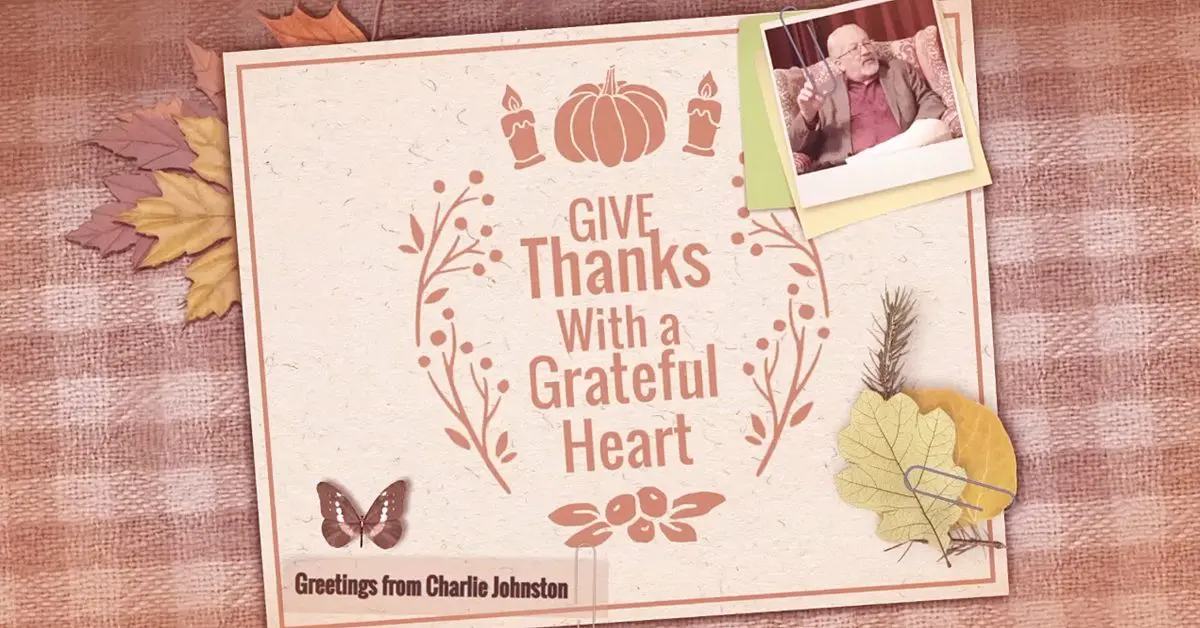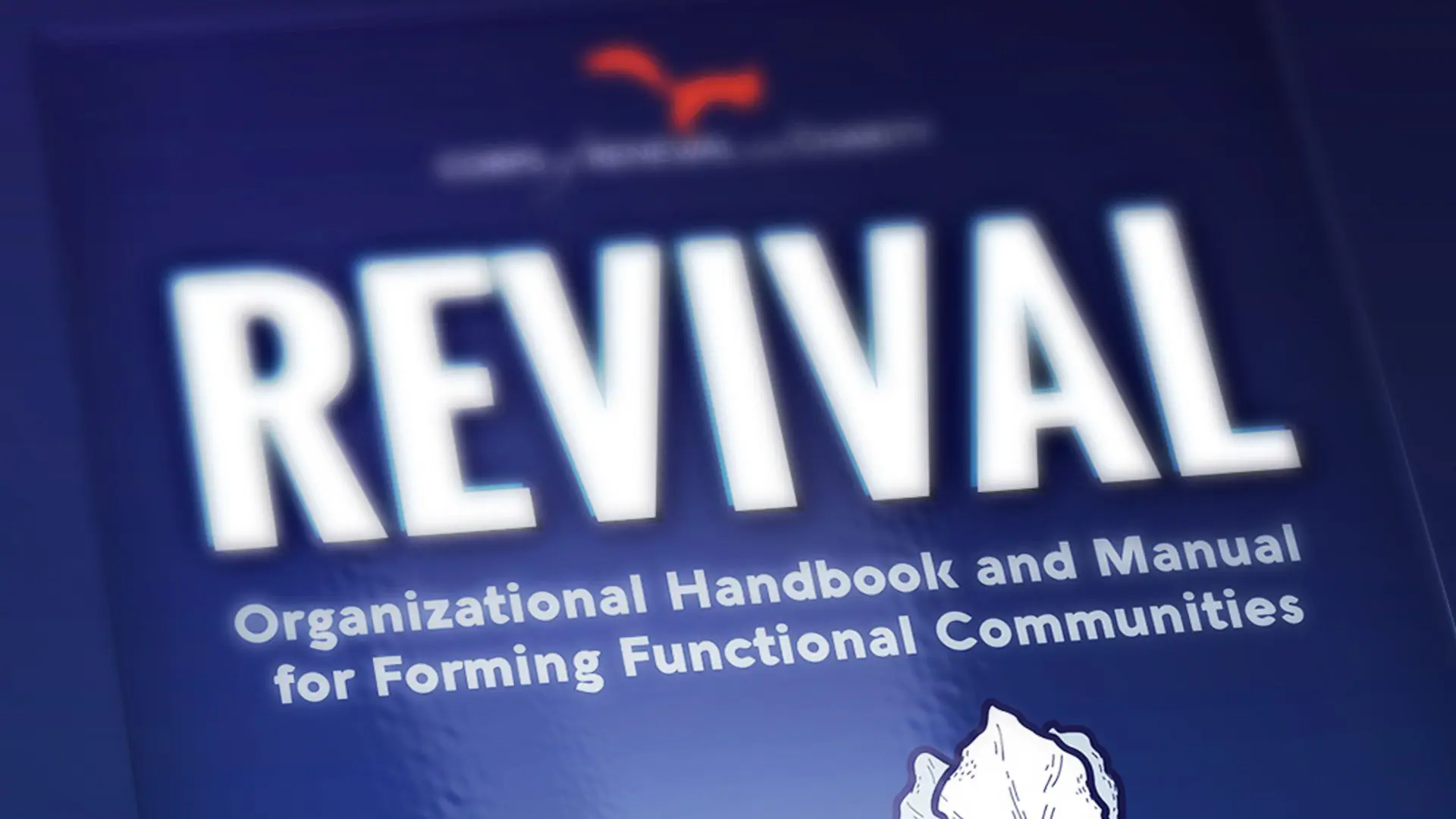| Merry Christmas! | 2025-12-18 | Charlie's Brief, Featured Media | charlie's brief, brief, video, corac, merry christmas | charlies-brief featured-media corac-leaders-forum |
| Expectations for 2026 | 2025-12-18 | Charlie's Brief, Featured Media | charlie's brief, brief, video, corac, work, expectations, chopping wood, 2026 | charlies-brief featured-media corac-leaders-forum |
| CORAC Newsletter | 2025-12-18 | CORAC Leaders Forum, National News, Featured Media | news, newsletter | corac-leaders-forum national-news featured-media |
| From the Cockpit of the Subaru | 2025-12-17 | CORAC Leaders Forum, Featured Media | newsletter column, charlie's writings, charlie johnston | corac-leaders-forum featured-media |
| Norovirus Remedies | 2025-12-15 | Health & Wellness, Ordinary Wisdom | homeopathic remedy, homeopathy, novovirus | health-and-wellness ordinary-wisdom corac-leaders-forum |
| Session 6 | 2025-12-08 | CORAC Leaders Forum, Featured Media, Global Meetings | video, global meeting, coracast | corac-leaders-forum featured-media global-meetings |
| Gratitude | 2025-11-25 | Charlie's Brief, Featured Media | thanksgiving, charlie's brief, brief, video, corac, gratitude | charlies-brief featured-media corac-leaders-forum |
| A Hit Dog Will Holler | 2025-10-23 | Charlie's Brief, Featured Media | video, corac, the church, brief, charlie's brief | charlies-brief featured-media corac-leaders-forum |
| The Creative Thinking Deck | 2025-10-15 | CORAC Leaders Forum, Featured Media, Downloads (LF) | good habits, self-improvement, mindset, civilized conversation | corac-leaders-forum featured-media downloads-lf |
| Rules of Civilized Conversation | 2025-10-14 | CORAC Leaders Forum, Featured Media, Downloads (LF) | good habits, self-improvement, mindset, civilized conversation | corac-leaders-forum featured-media downloads-lf |
| Avoiding Logical Fallacies | 2025-10-14 | CORAC Leaders Forum, Featured Media, Downloads (LF) | logical fallacies, self-improvement, reason, logic | corac-leaders-forum featured-media downloads-lf |
| Avoiding Cognitive Biases | 2025-10-14 | CORAC Leaders Forum, Featured Media, Downloads (LF) | self-improvement, cognitive biases, mindset | corac-leaders-forum featured-media downloads-lf |
| One Among Your Fellows | 2025-09-22 | Charlie's Brief, Featured Media | charlie's brief, brief, video, corac, charlie kirk | charlies-brief featured-media corac-leaders-forum |
| Contest: Share a Story With Us | 2025-09-04 | CORAC Leaders Forum, Featured Media | contest, stories, testimonials, swag, corac gear, overcoming fear | corac-leaders-forum featured-media |
| A Disciplined Rant | 2025-08-16 | Charlie's Brief, Featured Media | discipline, charlie's brief, brief, video, corac | charlies-brief featured-media corac-leaders-forum |
| You’re Not Breathing By Accident | 2025-08-11 | Charlie's Brief, Featured Media | charlie's brief, brief, video, teamwork, corac, age, grace, wisdom, accomplishment | charlies-brief featured-media corac-leaders-forum |
| Pray, Then Pay Attention | 2025-07-07 | Charlie's Brief, Featured Media | prayer, charlie's brief, brief, video, corac, evangelizing, practice, pay attention | charlies-brief featured-media corac-leaders-forum |
| In a Spirit of Poverty | 2025-07-03 | Charlie's Brief, Featured Media | charlie's brief, brief, video, go forth, corac, evangelizing | charlies-brief featured-media corac-leaders-forum |
| Confronting Crocodiles | 2025-06-13 | Charlie's Brief, Featured Media | charlie's brief, brief, video, corac, national conference, confrontation | charlies-brief featured-media corac-leaders-forum |
| The Screwworm: Remedies & Herbs | 2025-06-10 | Sustainable Living, Ordinary Wisdom | livestock, cattle, screwworm | sustainable-living ordinary-wisdom corac-leaders-forum |
| Trajectory | 2025-05-15 | Charlie's Brief, Featured Media | charlie's brief, brief, video, corac, trajectory, normalcy bias | charlies-brief featured-media corac-leaders-forum |
| Special Announcement | 2025-05-07 | Charlie's Brief, Featured Media | charlie's brief, brief, video, corac, national conference | charlies-brief featured-media corac-leaders-forum |
| Pushback, Parry & Advance | 2025-02-24 | Charlie's Brief, Featured Media | charlie's brief, brief, video, corac, pushback, trajectory | charlies-brief featured-media corac-leaders-forum |
| How Can They Say That? | 2025-02-17 | Charlie's Brief, Featured Media | charlie's brief, brief, video, lying, boldness | charlies-brief featured-media corac-leaders-forum |
| Adoration for a Pivotal Year | 2025-02-06 | Charlie's Brief, Featured Media | charlie's brief, brief, video, pivotal year, adoration | charlies-brief featured-media corac-leaders-forum |
| For Good or For Evil | 2025-01-10 | Charlie's Brief, Featured Media | charlie's brief, brief, video, trump, fire | charlies-brief featured-media corac-leaders-forum |
| Merry Christmas! | 2024-12-24 | Charlie's Brief, Featured Media | charlie's brief, brief, video, christmas, christmas card, joy, peace | charlies-brief featured-media corac-leaders-forum |
| The Terrible Swift Sword | 2024-12-23 | Charlie's Brief, Featured Media | charlie's brief, brief, video, optimism, the word, enthusiasm | charlies-brief featured-media corac-leaders-forum |
| Remove Obstacles | 2024-12-18 | Charlie's Brief, Featured Media | charlie's brief, brief, video, joy, evangelizing, obstacles, the word | charlies-brief featured-media corac-leaders-forum |
| Get Up and Do Your Job | 2024-12-04 | Charlie's Brief, Featured Media | charlie's brief, brief, video, community, optimism, victory, battles | charlies-brief featured-media corac-leaders-forum |
| Happy Thanksgiving | 2024-11-27 | Charlie's Brief, Featured Media | Election, charlie's brief, brief, video, gratitude, thanksgiving, special brief | charlies-brief featured-media corac-leaders-forum |
| A Mere Dime | 2024-11-13 | Charlie's Brief, Featured Media | Election, charlie's brief, brief, video, evangelizing, allies | charlies-brief featured-media corac-leaders-forum |
| Spoiler Alert | 2024-11-04 | Charlie's Brief, Featured Media | Election, charlie's brief, brief, video, peanut | charlies-brief featured-media corac-leaders-forum |
| Radio Contest | 2024-10-18 | Communications, Communications News, CORAC Leaders Forum, Featured Media | ham radio, contest | communications communications-news corac-leaders-forum featured-media |
| What Did You Expect? | 2024-10-16 | Charlie's Brief, Featured Media | Election, charlie's brief, brief, video, expectations, evangelizing, friendships | charlies-brief featured-media corac-leaders-forum |
| Thinning Hair or Dandruff | 2024-10-02 | Health & Wellness, Ordinary Wisdom | dandruff, thinning hair | health-and-wellness ordinary-wisdom corac-leaders-forum |
| Intro to Goldbacks Currency | 2024-09-21 | CORAC Leaders Forum, Regional News | | corac-leaders-forum regional-news |
| Special Brief From the Road | 2024-09-19 | Charlie's Brief, Featured Media | charlie's brief, brief, video, timing, calibration, adaptability, baseball | charlies-brief featured-media corac-leaders-forum |
| Resilience for Tumultuous Times | 2024-09-05 | CORAC Leaders Forum, Featured Media, Downloads (LF) | good habits, resilience | corac-leaders-forum featured-media downloads-lf |
| It’s a Test | 2024-08-29 | Charlie's Brief, Featured Media | charlie's brief, brief, video, experience, tnrs, acknowledge God, be a sign of hope, commentators | charlies-brief featured-media corac-leaders-forum |
| Just Know Enough | 2024-08-20 | Charlie's Brief, Featured Media | knowledge, charlie's brief, brief, video, work | charlies-brief featured-media corac-leaders-forum |
| Junket versus Rennet | 2024-08-14 | Sustainable Living, Food, Ordinary Wisdom | cheese, cheese making, rennet, junket | sustainable-living food ordinary-wisdom corac-leaders-forum |
| Meantime… reality. | 2024-07-31 | Charlie's Brief, Featured Media | charlie's brief, brief, video, trump, time, pope francis, paris, presumption | charlies-brief featured-media corac-leaders-forum |
| Pharaoh’s Magicians | 2024-07-20 | Charlie's Brief, Featured Media | charlie's brief, brief, video, trump | charlies-brief featured-media corac-leaders-forum |
| Homemade Body Powder | 2024-07-07 | Health & Wellness, Ordinary Wisdom | homemade, body powder | health-and-wellness ordinary-wisdom corac-leaders-forum |
| Speaking to Build Up | 2024-06-20 | Charlie's Brief, Featured Media | charlie's brief, brief, video, minnesota prepper expo, preparation | charlies-brief featured-media corac-leaders-forum |
| They Are Like Chaff | 2024-06-19 | Charlie's Brief, Featured Media | charlie's brief, brief, video, Holy Spirit, psalm 1, war | charlies-brief featured-media corac-leaders-forum |
| Collard Greens | 2024-06-17 | Sustainable Living, Food, Gardening/Gathering/Foraging, Ordinary Wisdom | gardening, weed killer | sustainable-living food gardening-gathering-foraging ordinary-wisdom corac-leaders-forum |
| Revival – Coming Soon | 2024-06-13 | CORAC Leaders Forum, Featured Media | charlie's writings, book, renewal | corac-leaders-forum featured-media |
| Simple Joy & Devotions | 2024-06-12 | Charlie's Brief, Featured Media | charlie's brief, brief, video, pope leo xiii, joy, simple devotions, evangelize | charlies-brief featured-media corac-leaders-forum |
| Poison Ivy Remedies | 2024-06-10 | Health & Wellness, Homeopathy, Ordinary Wisdom | homeopathic remedy, poison ivy | health-and-wellness homeopathy ordinary-wisdom corac-leaders-forum |
| Homemade Weed Killer | 2024-06-10 | Sustainable Living, Gardening/Gathering/Foraging, Ordinary Wisdom | gardening, weed killer | sustainable-living gardening-gathering-foraging ordinary-wisdom corac-leaders-forum |
| Homemade Fertilizer | 2024-06-10 | Sustainable Living, Gardening/Gathering/Foraging, Ordinary Wisdom | gardening, fertilizer | sustainable-living gardening-gathering-foraging ordinary-wisdom corac-leaders-forum |
| Founding Fathers | 2024-06-06 | Charlie's Brief, Featured Media | charlie's brief, brief, video, historical figures, founding fathers, john adams, thomas jefferson | charlies-brief featured-media corac-leaders-forum |
| Corn Silk Tea & Tincture | 2024-05-31 | Health & Wellness, Homeopathy, Ordinary Wisdom | herbal remedy, tincture, tea, kidney stones, corn silk, gout, uti | health-and-wellness homeopathy ordinary-wisdom corac-leaders-forum |
| Thy Will Be Done | 2024-05-23 | Charlie's Brief, Featured Media | prayer, charlie's brief, brief, video, healing, miracles | charlies-brief featured-media corac-leaders-forum |
| Planting Yellow Potato Onions | 2024-05-22 | Sustainable Living, Gardening/Gathering/Foraging, Ordinary Wisdom | gardening, planting, yellow potato onions | sustainable-living gardening-gathering-foraging ordinary-wisdom corac-leaders-forum |
| Who Is Going To Stop It? | 2024-05-15 | Charlie's Brief, Featured Media | charlie's brief, brief, video, rebuilding society, just say no | charlies-brief featured-media corac-leaders-forum |
| Flowers for Momma | 2024-05-09 | Health & Wellness, Ordinary Wisdom | essential oils, geraniums, lavender, clary sage | health-and-wellness ordinary-wisdom corac-leaders-forum |
| Mast Cell Activation Syndrome | 2024-05-03 | Health & Wellness, Homeopathy, Ordinary Wisdom | homeopathic remedy, homeopathy, mast cell activation syndrome | health-and-wellness homeopathy ordinary-wisdom corac-leaders-forum |
| To Treat Mono | 2024-05-03 | Health & Wellness, Homeopathy, Ordinary Wisdom | homeopathic remedy, homeopathy, mono | health-and-wellness homeopathy ordinary-wisdom corac-leaders-forum |
| Help for Jet Lag | 2024-05-02 | Health & Wellness, Homeopathy, Ordinary Wisdom | homeopathic remedy, homeopathy, jet lag | health-and-wellness homeopathy ordinary-wisdom corac-leaders-forum |
| Blowback Cometh | 2024-05-01 | Charlie's Brief, Featured Media | charlie's brief, brief, video, rebuilding society, campus protest, failing institutions | charlies-brief featured-media corac-leaders-forum |
| Anne’s Specialty Kits | 2024-04-30 | Health & Wellness, Homeopathy, Ordinary Wisdom | homeopathy, ticks, tick bites, lyme disease | health-and-wellness homeopathy ordinary-wisdom corac-leaders-forum |
| Good Samaritan Oil | 2024-04-29 | Health & Wellness, Ordinary Wisdom | good samaritan oil | health-and-wellness ordinary-wisdom corac-leaders-forum |
| Security Camera Systems | 2024-04-26 | Ordinary Wisdom, Defense League | home security, security cameras | ordinary-wisdom defense-league corac-leaders-forum |
| Darkest Before the Dawn | 2024-04-15 | Charlie's Brief, Featured Media | charlie's brief, brief, video, prolife, abortion | charlies-brief featured-media corac-leaders-forum |
| Beware Spiritual Bullies | 2024-04-10 | Charlie's Brief, Featured Media | charlie's brief, brief, video, gurus, spiritual bullies, formulas | charlies-brief featured-media corac-leaders-forum |
| Mark Kollar – Catholic Healing Evangelist | 2024-04-01 | Featured Media, Reveille | reveille, podcast, video, mp, healing ministry, miraculous healings | featured-media reveille corac-leaders-forum |
| Tick Season Begins! | 2024-03-31 | Health & Wellness, Homeopathy, Ordinary Wisdom | homeopathy, ticks, tick bites, lyme disease | health-and-wellness homeopathy ordinary-wisdom corac-leaders-forum |
| Rabies Protocols | 2024-03-29 | Health & Wellness, Homeopathy, Ordinary Wisdom | homeopathy, rabies, rabies treatment | health-and-wellness homeopathy ordinary-wisdom corac-leaders-forum |
| Liquid Dilutions vs Medicating Potency | 2024-03-28 | Health & Wellness, Homeopathy, Ordinary Wisdom | homeopathy, grafting, liquid dilution, medicating potency | health-and-wellness homeopathy ordinary-wisdom corac-leaders-forum |
| Remedies for Highly Pathogenic Avian Influenza in Cattle | 2024-03-28 | Sustainable Living, Animals, Ordinary Wisdom | homeopathic remedy, homeopathy, cattle, hpai, highly pathogenic avian influenza | sustainable-living animals ordinary-wisdom corac-leaders-forum |
| Increasing Soil Acidity | 2024-03-28 | Sustainable Living, Ordinary Wisdom | soil, acidity, alkalinity, amendments, garden, dirt | sustainable-living ordinary-wisdom corac-leaders-forum |
| In a Nutshell | 2024-03-27 | Charlie's Brief, Featured Media | charlie's brief, brief, video, apparitions, sacred scripture | charlies-brief featured-media corac-leaders-forum |
| Homeopathic Remedies, Treatment of Outbreaks | 2024-03-25 | Health & Wellness, Ordinary Wisdom | homeopathic remedy, homeopathy, remedies to have | health-and-wellness ordinary-wisdom corac-leaders-forum |
| Do the Right Thing | 2024-03-16 | Charlie's Brief, Featured Media | charlie's brief, brief, battle, doing | charlies-brief featured-media corac-leaders-forum |
| The Hour of Our Discontent | 2024-03-14 | Charlie's Brief, Featured Media | charlie's brief, brief, battle, doing | charlies-brief featured-media corac-leaders-forum |
| Going My Way? | 2024-03-07 | Charlie's Brief, Featured Media | charlie's brief, brief, advent, christmas, the manger | charlies-brief featured-media corac-leaders-forum |
| What About Tetanus? | 2024-03-01 | Health & Wellness, Ordinary Wisdom | tetanus | health-and-wellness ordinary-wisdom corac-leaders-forum |
| Vagal Tone | 2024-03-01 | Health & Wellness, Homeopathy, Ordinary Wisdom | vagus nerve, stress relief | health-and-wellness homeopathy-classes-hw ordinary-wisdom classes-hw corac-leaders-forum |
| Castor Oil Packs | 2024-02-29 | Health & Wellness, Homeopathy, Ordinary Wisdom | detox, stress, sleep, castor oil, eye health, digestion, oil pulling | health-and-wellness homeopathy-classes-hw ordinary-wisdom classes-hw corac-leaders-forum |
| Grafting a Remedy | 2024-02-26 | Health & Wellness, Homeopathy, Ordinary Wisdom | homeopathy, graft remedy | health-and-wellness homeopathy-classes-hw ordinary-wisdom classes-hw corac-leaders-forum |
| If Cell Service Goes Down | 2024-02-26 | Communications, Ordinary Wisdom | ham radio, emergency communications | communications ordinary-wisdom corac-leaders-forum |
| Rebuilding Cartilage | 2024-02-21 | Health & Wellness, Homeopathy, Ordinary Wisdom | homeopathy, sports injuries, cartilage, ligament, tendon | health-and-wellness homeopathy-classes-hw ordinary-wisdom classes-hw corac-leaders-forum |
| Lycopodium Clavatum | 2024-02-20 | Health & Wellness, Ordinary Wisdom | herbal remedy, tincture, medicinal herbs, herbal tincture, lycipodium clavarum | health-and-wellness ordinary-wisdom corac-leaders-forum |
| A Delicate Topic | 2024-02-20 | Health & Wellness, Homeopathy, Ordinary Wisdom | homeopathy, parasites | health-and-wellness homeopathy-classes-hw ordinary-wisdom classes-hw corac-leaders-forum |
| Storing Canned Goods | 2024-02-12 | Sustainable Living, Food, Ordinary Wisdom | food storage, botulism, canned goods, food safety | sustainable-living food ordinary-wisdom corac-leaders-forum |
| Washing Fruits & Vegetables | 2024-02-12 | Sustainable Living, Food, Ordinary Wisdom | vegetables, food storage, vinegar, produce, fruits, parasites, pesticides, cleaning, grapefruit seed extract | sustainable-living food ordinary-wisdom corac-leaders-forum |
| Antiobiotic Detox | 2024-02-12 | Health & Wellness, Herbal Medicine, Ordinary Wisdom | homeopathy, antibiotic detox | health-and-wellness herbal-medicine ordinary-wisdom corac-leaders-forum |
| Paul List – Mount Doom | 2024-02-10 | Featured Media, Reveille | reveille, podcast, video, joe gallagher, paul lint, tolkien, artificial intelligence | featured-media reveille corac-leaders-forum |
| Apple Sugar | 2024-02-07 | Sustainable Living, Food, Ordinary Wisdom | sugar, dehydrating | sustainable-living food ordinary-wisdom corac-leaders-forum |
| Mushroom Tinctures | 2024-02-05 | Health & Wellness, Herbal Medicine, Ordinary Wisdom | tincture, homeopathy, herbal tincture, mushrooms | health-and-wellness herbal-medicine ordinary-wisdom corac-leaders-forum |
| Mounting Wire Antennas | 2024-02-05 | Communications, Equipment, Ordinary Wisdom | ham radio, antennas | communications equipment ordinary-wisdom corac-leaders-forum |
| Prayer Thoughts | 2024-02-05 | Prayer, Ordinary Wisdom | prayers, raising children, fear not | prayer ordinary-wisdom corac-leaders-forum |
| Quail | 2024-01-26 | Sustainable Living, Animals, Ordinary Wisdom | livestock, eggs, quail, raising food | sustainable-living animals ordinary-wisdom corac-leaders-forum |
| Treating Cold & Flu | 2024-01-26 | Health & Wellness, Homeopathy, Ordinary Wisdom | homeopathic remedy, homeopathy, cold and flu | health-and-wellness homeopathy ordinary-wisdom corac-leaders-forum |
| Garlic For Dogs | 2024-01-17 | Sustainable Living, Animals, Ordinary Wisdom | animal care, garlic, dog, heart worms | sustainable-living animals ordinary-wisdom corac-leaders-forum |
| The Red Squirrel | 2024-01-14 | CORAC Leaders Forum, Featured Media | video, alert, membership, squirrels | corac-leaders-forum featured-media |
| Elderberry | 2023-12-29 | Health & Wellness, Herbal Medicine, Ordinary Wisdom | herbal remedy, herbs, cold and flu, elderberry | health-and-wellness herbal-medicine ordinary-wisdom corac-leaders-forum |
| Kyoshi Scott Maczuga – Christian Warriors | 2023-12-20 | Featured Media, Reveille | reveille, podcast, scott maczuga, physical fitness, discipline, physical training, martial arts, self defense, video, joe gallagher | featured-media reveille corac-leaders-forum |
| Antennas (A Discussion) | 2023-12-18 | Communications, Equipment, Ordinary Wisdom | ham radio, antennas | communications equipment ordinary-wisdom corac-leaders-forum |
| CB Radios | 2023-12-17 | Communications, Equipment, Ordinary Wisdom | ham radio, cb radios | communications equipment ordinary-wisdom corac-leaders-forum |
| Help For Bed Wetting | 2023-12-16 | Health & Wellness, Herbal Medicine, Ordinary Wisdom | herbal remedy, essential oils, bed wetting | health-and-wellness herbal-medicine ordinary-wisdom corac-leaders-forum |
| Blessings to You This Christmas | 2023-12-15 | CORAC Leaders Forum, Featured Media | video, advent, christmas, christmas card | corac-leaders-forum featured-media |
| What a Glorious Christmas This Is | 2023-12-15 | Charlie's Brief, Featured Media | charlie's brief, brief, advent, christmas, the manger | charlies-brief featured-media corac-leaders-forum |
| Signal Note to Self | 2023-12-08 | Ordinary Wisdom | signal, tech support, computer app | ordinary-wisdom corac-leaders-forum |
| All Things Cayenne | 2023-12-07 | Health & Wellness, Herbal Medicine, Ordinary Wisdom | herbal remedy, tincture, herbs, herbal tincture, cayenne, stop bleeding | health-and-wellness herbal-medicine ordinary-wisdom corac-leaders-forum |
| Jesse Romero – Defense! | 2023-12-06 | Featured Media, Reveille | reveille, physical fitness, discipline, self defense, video, joe gallagher, coracast, jesse romero, spiritual fitness | featured-media reveille corac-leaders-forum |
| Dare Greatly | 2023-12-05 | Charlie's Brief, Featured Media | podcast, charlie's brief, video | charlies-brief featured-media corac-leaders-forum |
| Hypoxia | 2023-12-05 | Health & Wellness, Homeopathy, Ordinary Wisdom | homeopathic remedy, homeopathy, hypoxia | health-and-wellness homeopathy ordinary-wisdom corac-leaders-forum |
| The Language of Homeopathy vs. Herbal Tinctures | 2023-12-05 | Health & Wellness, Homeopathy, Herbal Medicine, Ordinary Wisdom | herbal remedy, herbal medicine, homeopathy, herbal tincture | health-and-wellness homeopathy herbal-medicine ordinary-wisdom corac-leaders-forum |
| Where to Buy Essential Oils | 2023-12-05 | Health & Wellness, Herbal Medicine, Ordinary Wisdom | herbal remedy, herbal medicine, essential oils, sourcing medicine | health-and-wellness herbal-medicine ordinary-wisdom corac-leaders-forum |
| Leave the Gun. Take the Cannoli. | 2023-12-01 | Charlie's Brief, Featured Media | podcast, charlie's brief, brief, video | charlies-brief featured-media corac-leaders-forum |
| Beet Seeds | 2023-11-24 | Food, Gardening/Gathering/Foraging, Ordinary Wisdom | seeds, beets, bulk seeds, animal fodder, homegrown food | food gardening-gathering-foraging ordinary-wisdom sustainable-living corac-leaders-forum |
| Respiratory Illnesses in Dogs | 2023-11-21 | Animals, Ordinary Wisdom | herbal remedy, animal care, animal respiratory illness, dog | animals ordinary-wisdom sustainable-living corac-leaders-forum |
| Powering a Well Pump | 2023-11-16 | Water, Ordinary Wisdom | solar generator, generator, well pump, gas generator | water ordinary-wisdom sustainable-living corac-leaders-forum |
| Tetanus Shots | 2023-11-15 | Conventional Care, Ordinary Wisdom | tetanus shot | conventional-care ordinary-wisdom health-and-wellness corac-leaders-forum |
| Relieving Severe Knee Pain | 2023-11-14 | Homeopathy, Ordinary Wisdom | homeopathic remedy, homeopathy, pain remedy, knee pain | homeopathy ordinary-wisdom health-and-wellness corac-leaders-forum |
| Retaining the Most Vitamin C in Vegetables | 2023-11-08 | Food, Ordinary Wisdom | vegetables, food preparation, vitamin c | food ordinary-wisdom sustainable-living corac-leaders-forum |
| CORAC Global Zoom Session 5 (Video) | 2023-11-06 | CORAC Leaders Forum, Featured Media, Global Meetings | video, global meeting, coracast | corac-leaders-forum featured-media global-meetings |
| Remedies For Bloating | 2023-11-03 | Homeopathy, Herbal Medicine, Ordinary Wisdom | herbal remedy, tincture, homeopathic remedy, herbal medicine, homeopathy, herbal tea, essential oils, bloating | homeopathy herbal-medicine ordinary-wisdom health-and-wellness corac-leaders-forum |
| Vehicle Batteries | 2023-11-02 | Life & Personal Skills, Ordinary Wisdom | preparedness, battery, battery charger, vehicle battery | life-and-personal-skills ordinary-wisdom sustainable-living corac-leaders-forum |
| Sourcing Ivermectin | 2023-11-01 | Ordinary Wisdom | ivermectin, sourcing medicine | ordinary-wisdom corac-leaders-forum |
| Whole House Water Filters | 2023-10-30 | Water, Ordinary Wisdom | well, water filter, water purification | water ordinary-wisdom sustainable-living corac-leaders-forum |
| Once Upon a Thyme | 2023-10-29 | Herbal Medicine, Ordinary Wisdom | herbal remedy, herbal medicine, herbs, essential oils, Thyme | herbal-medicine ordinary-wisdom health-and-wellness corac-leaders-forum |
| Ban on Homeopathic Eye Drops | 2023-10-27 | Homeopathy, Ordinary Wisdom | homeopathic remedy, homeopathy, eye drops | homeopathy ordinary-wisdom health-and-wellness corac-leaders-forum |
| Dehyrdrating Potatoes | 2023-10-23 | Food, Ordinary Wisdom | vegetables, potatoes, dehydrating vegetables, food preparation, food preservation | food ordinary-wisdom sustainable-living corac-leaders-forum |
| Cough Remedies | 2023-10-23 | Homeopathy, Herbal Medicine, Ordinary Wisdom | herbal remedy, homeopathic remedy, herbal medicine, homeopathy, cold and flu, cough | homeopathy herbal-medicine ordinary-wisdom health-and-wellness corac-leaders-forum |
| A Communications Q&A | 2023-10-22 | Equipment, Ordinary Wisdom | ham radio, shortwave radio, handheld radio, ham license | equipment ordinary-wisdom communications corac-leaders-forum |
| For Broken Bones | 2023-10-21 | Homeopathy, Herbal Medicine, Ordinary Wisdom | herbal remedy, homeopathic remedy, herbal medicine, homeopathy, herbal tea, bones, broken bones | homeopathy herbal-medicine ordinary-wisdom health-and-wellness corac-leaders-forum |
| Treating Rash or Hives | 2023-10-20 | Homeopathy, Ordinary Wisdom | homeopathic remedy, homeopathy, rash, hives | homeopathy ordinary-wisdom health-and-wellness corac-leaders-forum |
| Treating Shingles | 2023-10-20 | Homeopathy, Ordinary Wisdom | homeopathic remedy, homeopathy, shingles | homeopathy ordinary-wisdom health-and-wellness corac-leaders-forum |
| Doug Barry – Keeping It Simple | 2023-10-11 | Featured Media, Reveille | preparedness, reveille, podcast, discipline, video, joe gallagher, doug barry, brcoalition | featured-media reveille corac-leaders-forum |
| Blessing of the Lost Girls | 2023-10-06 | Charlie's Brief, Featured Media | podcast, charlie's brief, video, ja jance | charlies-brief featured-media corac-leaders-forum |
| A Game of Baseball | 2023-10-03 | Charlie's Brief, Featured Media | podcast, charlie's brief, video | charlies-brief featured-media corac-leaders-forum |
| Blocking Your Device Signal | 2023-10-03 | Life & Personal Skills, Ordinary Wisdom | device signal, blocking signal, mobile device | life-and-personal-skills ordinary-wisdom sustainable-living corac-leaders-forum |
| Advil Alternative | 2023-09-27 | Homeopathy, Ordinary Wisdom | homeopathic remedy, homeopathy, advil, pain remedy | homeopathy ordinary-wisdom health-and-wellness corac-leaders-forum |
| Belling The Cat | 2023-09-21 | Charlie's Brief, Featured Media | podcast, charlie's brief, video | charlies-brief featured-media corac-leaders-forum |
| Growing Corn | 2023-09-17 | Gardening/Gathering/Foraging, Ordinary Wisdom | seeds, gardening, planting season, corn | gardening-gathering-foraging ordinary-wisdom sustainable-living corac-leaders-forum |
| Cold Treatments | 2023-09-14 | Homeopathy, Herbal Medicine, Ordinary Wisdom | herbal remedy, homeopathic remedy, homeopathy, cold and flu | homeopathy herbal-medicine ordinary-wisdom health-and-wellness corac-leaders-forum |
| What’s In Your Cup? | 2023-09-13 | Ordinary Wisdom | words | ordinary-wisdom corac-leaders-forum |
| Acid Reflux in a Newborn | 2023-09-13 | Homeopathy, Ordinary Wisdom | homeopathic remedy, homeopathy, acid reflux, newborn, infant | homeopathy ordinary-wisdom health-and-wellness corac-leaders-forum |
| To C or Not to C | 2023-09-07 | Conventional Care, Ordinary Wisdom | vitamin c | conventional-care ordinary-wisdom health-and-wellness corac-leaders-forum |
| A Conversation About Communications | 2023-09-05 | Licensing, Equipment, Ordinary Wisdom | ham radio, handheld radio, ham license | licensing equipment ordinary-wisdom communications corac-leaders-forum |
| Treating High LDL Cholesterol | 2023-08-31 | Homeopathy, Ordinary Wisdom | homeopathic remedy, homeopathy, cholesterol | homeopathy ordinary-wisdom health-and-wellness corac-leaders-forum |
| Choosing One Farm Animal | 2023-08-30 | Animals, Ordinary Wisdom | animal care, farm animal, sheep | animals ordinary-wisdom sustainable-living corac-leaders-forum |
| Homemade Toothpaste Powder | 2023-08-29 | Life & Personal Skills, Ordinary Wisdom | toothpaste, oral hygiene, homemade | life-and-personal-skills ordinary-wisdom sustainable-living corac-leaders-forum |
| Boneset Tincture for Colds & Flu | 2023-08-25 | Herbal Medicine, Ordinary Wisdom | herbal remedy, tincture, herbal medicine, cold and flu | herbal-medicine ordinary-wisdom health-and-wellness corac-leaders-forum |
| All Things Dandelion | 2023-08-23 | Herbal Medicine, Ordinary Wisdom | herbal remedy, tincture, herbal medicine, herbal tea, dandelion | herbal-medicine ordinary-wisdom health-and-wellness corac-leaders-forum |
| Natural Antiobiotics | 2023-08-22 | Herbal Medicine, Ordinary Wisdom | herbal remedy, herbal medicine, antibiotic, garlic, allimax | herbal-medicine ordinary-wisdom health-and-wellness corac-leaders-forum |
| For Postnasal Drip | 2023-08-22 | Herbal Medicine, Ordinary Wisdom | herbal remedy, herbal medicine, postnasal drip | herbal-medicine ordinary-wisdom health-and-wellness corac-leaders-forum |
| How Much Land Do You Need? | 2023-08-21 | Shelter, Animals, Gardening/Gathering/Foraging, Ordinary Wisdom | gardening, cow, land, horse, farming, chicken, livestock | shelter animals gardening-gathering-foraging ordinary-wisdom sustainable-living corac-leaders-forum |
| A Wisconsin Field Day – Back to Basics | 2023-08-19 | Featured Media, Reveille | preparedness, reveille, podcast, video, joe gallagher, home skills, farino's, region 9, field day, wisconsin | featured-media reveille corac-leaders-forum |
| Cold Sore Treatment | 2023-08-19 | Homeopathy, Herbal Medicine, Ordinary Wisdom | herbal remedy, homeopathic remedy, homeopathy, herbal tea, cold sore | homeopathy herbal-medicine ordinary-wisdom health-and-wellness corac-leaders-forum |
| Studying For Your HAM Radio License | 2023-08-18 | Licensing, Ordinary Wisdom | ham radio, ham license | licensing ordinary-wisdom communications corac-leaders-forum |
| Using Hawthorn | 2023-08-17 | Herbal Medicine, Ordinary Wisdom | herbal remedy, herbal medicine, hawthorn, hawthorn berry, high blood pressure | herbal-medicine ordinary-wisdom health-and-wellness corac-leaders-forum |
| It Is the Religion of Ignorance That Tyranny Begins | 2023-08-14 | Charlie's Brief, Featured Media | podcast, charlie's brief, video | charlies-brief featured-media corac-leaders-forum |
| Autumn Planting | 2023-08-13 | Food, Gardening/Gathering/Foraging, Ordinary Wisdom | gardening, planting, vegetables, herbs, wild vegetables | food gardening-gathering-foraging ordinary-wisdom sustainable-living corac-leaders-forum |
| Favorite Herbs | 2023-08-11 | Herbal Medicine, Ordinary Wisdom | herbal remedy, tincture, herbal medicine, herbal tea | herbal-medicine ordinary-wisdom health-and-wellness corac-leaders-forum |
| Repelling Deer & Rabbits | 2023-08-10 | Gardening/Gathering/Foraging, Ordinary Wisdom | gardening, deer, rabbits | gardening-gathering-foraging ordinary-wisdom sustainable-living corac-leaders-forum |
| How to Help a Dog With Arthritis | 2023-08-09 | Homeopathy, Animals, Ordinary Wisdom | animal care, homeopathic remedy, homeopathy, dog | homeopathy animals ordinary-wisdom health-and-wellness sustainable-living corac-leaders-forum |
| The World of Squirrels? | 2023-08-09 | Charlie's Brief, Featured Media | podcast, charlie's brief, video | charlies-brief featured-media corac-leaders-forum |
| Healing Humor | 2023-08-08 | Ordinary Wisdom | remedy, humor | ordinary-wisdom corac-leaders-forum |
| Milking Livestock | 2023-08-07 | Animals, Ordinary Wisdom | farm animal, milking livestock, cow, goat | animals ordinary-wisdom sustainable-living corac-leaders-forum |
| Regular Podcast | 2023-08-07 | CORAC Leaders Forum, National News, Featured Media | podcast, video, chatting with charlie, seven questions, dr. joe | corac-leaders-forum national-news featured-media |
| Cuprum Met Uses | 2023-08-06 | Herbal Medicine, Ordinary Wisdom | cuprum met, concussion, spasm, seizure, head injury, tourette's syndrome | herbal-medicine ordinary-wisdom health-and-wellness corac-leaders-forum |
| Planting Garlic | 2023-08-05 | Gardening/Gathering/Foraging, Ordinary Wisdom | gardening, planting season, garlic, fall planting, spring planting | gardening-gathering-foraging ordinary-wisdom sustainable-living corac-leaders-forum |
| Treating a New Bee Sting | 2023-08-04 | Homeopathy, Ordinary Wisdom | homeopathic remedy, homeopathy, bees, bee sting, homemade remedy | homeopathy ordinary-wisdom health-and-wellness corac-leaders-forum |
| Rabies | 2023-08-03 | Homeopathy, Ordinary Wisdom | homeopathic remedy, homeopathy, rabies | homeopathy ordinary-wisdom health-and-wellness corac-leaders-forum |
| Wells and Sourcing Clean Water | 2023-08-02 | Water, Ordinary Wisdom | ground water, well, sourcing water, water contamination, purifying water | water ordinary-wisdom sustainable-living corac-leaders-forum |
| Kidney Stones | 2023-08-01 | Homeopathy, Herbal Medicine, Ordinary Wisdom | herbal remedy, homeopathic remedy, herbal medicine, homeopathy, kidney stones, cell salts | homeopathy herbal-medicine ordinary-wisdom health-and-wellness corac-leaders-forum |
| Heart Issues | 2023-08-01 | Homeopathy, Ordinary Wisdom | vax, vax remedy, homeopathic remedy, homeopathy, heart, stroke | homeopathy ordinary-wisdom health-and-wellness corac-leaders-forum |
| Lion’s Mane | 2023-07-31 | Herbal Medicine, Ordinary Wisdom | herbal remedy, herbal medicine, lions mane, central nervous system, dementia, parkinsons disease, down syndrome | herbal-medicine ordinary-wisdom health-and-wellness corac-leaders-forum |
| A Heritage Deeply Embedded in the American DNA | 2023-07-31 | Charlie's Brief, Featured Media | podcast, charlie's brief, video | charlies-brief featured-media corac-leaders-forum |
| Multivitamin Recipe | 2023-07-30 | Homeopathy, Ordinary Wisdom | tincture, medicinal herbs, multivitamin, nutrition, homeopathic bioplasm | homeopathy ordinary-wisdom health-and-wellness corac-leaders-forum |
| Dill Uses | 2023-07-29 | Gardening/Gathering/Foraging, Ordinary Wisdom | seeds, dill | gardening-gathering-foraging ordinary-wisdom sustainable-living corac-leaders-forum |
| A Removed Gall Bladder | 2023-07-28 | Homeopathy, Herbal Medicine, Ordinary Wisdom | tincture, homeopathic remedy, gall-bladder | homeopathy herbal-medicine ordinary-wisdom health-and-wellness corac-leaders-forum |
| Revision of the Definition of “Brain Dead” | 2023-07-27 | Conventional Care, Ordinary Wisdom | brain, brain death, definition | conventional-care ordinary-wisdom health-and-wellness corac-leaders-forum |
| A Dead Parrot Sketch | 2023-07-27 | Charlie's Brief, Featured Media | podcast, charlie's brief, video | charlies-brief featured-media corac-leaders-forum |
| More About the Vax | 2023-07-26 | Homeopathy, Herbal Medicine, Ordinary Wisdom | herbal remedy, vax, vax remedy, homeopathic remedy, herbal medicine, homeopathy, herbal tea, pregnancy | homeopathy herbal-medicine ordinary-wisdom health-and-wellness corac-leaders-forum |
| Essential Oils for Pregnant Women | 2023-07-24 | Herbal Medicine, Ordinary Wisdom | herbal remedy, herbal medicine, essential oils, pregnancy | herbal-medicine ordinary-wisdom health-and-wellness corac-leaders-forum |
| Tape to Keep Tinctures and Remedies From Evaporating | 2023-07-23 | Homeopathy, Herbal Medicine, Life & Personal Skills, Ordinary Wisdom | tape, rescue tape, plumbers tape, teflon tape | homeopathy herbal-medicine life-and-personal-skills ordinary-wisdom health-and-wellness sustainable-living corac-leaders-forum |
| A Simple | 2023-07-22 | Herbal Medicine, Ordinary Wisdom | herbal remedy, tincture, tea, herbal medicine, liver, gall-bladder, antiseptic, immune system, stress, respiratory | herbal-medicine ordinary-wisdom health-and-wellness corac-leaders-forum |
| Preparedness | 2023-07-21 | Life & Personal Skills, Ordinary Wisdom | solar generator, generator, gas generator, preparedness, solar energy, battery, woodstove | life-and-personal-skills ordinary-wisdom sustainable-living corac-leaders-forum |
| Adult Hand, Foot, Mouth Disease | 2023-07-20 | Homeopathy, Herbal Medicine, Ordinary Wisdom | herbal remedy, tincture, homeopathic remedy, herbal medicine, homeopathy, hand foot mouth disease, herbal tea | homeopathy herbal-medicine ordinary-wisdom health-and-wellness corac-leaders-forum |
| Chest Congestion | 2023-07-19 | Herbal Medicine, Ordinary Wisdom | herbal remedy, herbal tea, chest congestion, chest rub | herbal-medicine ordinary-wisdom health-and-wellness corac-leaders-forum |
| Natural Toothpaste | 2023-07-18 | Life & Personal Skills, Ordinary Wisdom | toothpaste, oral hygiene, homemade | life-and-personal-skills ordinary-wisdom sustainable-living corac-leaders-forum |
| A Grasshopper Problem in the Garden | 2023-07-17 | Homeopathy, Gardening/Gathering/Foraging, Ordinary Wisdom | tincture, homeopathic remedy, gardening, homeopathy, grasshopper | homeopathy gardening-gathering-foraging ordinary-wisdom health-and-wellness sustainable-living corac-leaders-forum |
| CORAC Global Zoom Session 4 (Video) | 2023-07-17 | CORAC Leaders Forum, Featured Media, Global Meetings | video, global meeting, coracast | corac-leaders-forum featured-media global-meetings |
| Covid Vax Remedies | 2023-07-16 | Herbal Medicine, Ordinary Wisdom | herbal remedy, tincture, medicinal herbs, vax, detox, covid, vax remedy | herbal-medicine ordinary-wisdom health-and-wellness corac-leaders-forum |
| Malaria Remedies | 2023-07-15 | Herbal Medicine, Ordinary Wisdom | malaria, herbal remedy, tincture, seeds, medicinal herbs | herbal-medicine ordinary-wisdom health-and-wellness corac-leaders-forum |
| Continue Hoeing the Beans | 2023-06-29 | Charlie's Brief, Featured Media | podcast, charlie's brief, video | charlies-brief featured-media corac-leaders-forum |
| Aslan is on the Move | 2023-06-26 | Charlie's Brief, Featured Media | podcast, charlie's brief, video | charlies-brief featured-media corac-leaders-forum |
| Bind Yourself to God’s Will | 2023-06-20 | Charlie's Brief, Featured Media | podcast, charlie's brief, video | charlies-brief featured-media corac-leaders-forum |
| Finding Our Courage | 2023-06-13 | CORAC Leaders Forum, Leader Resources, General Leaders Forum Discussion, Downloads (LF) | leadership education, leadership, courage | corac-leaders-forum leader-resources general-leaders-forum-discussion downloads-lf |
| Be the Lighthouse | 2023-05-23 | Charlie's Brief, Featured Media | podcast, charlie's brief, video | charlies-brief featured-media corac-leaders-forum |
| It’s Speeding Up Dramatically, Folks | 2023-05-18 | Charlie's Brief, Featured Media | podcast, charlie's brief, video | charlies-brief featured-media corac-leaders-forum |
| Go Forth | 2023-04-26 | CORAC Leaders Forum, Featured Media, Go Forth | video, go forth, initiative, side by side, community | corac-leaders-forum featured-media go-forth |
| CORAC Global Zoom Session 3 (Video) | 2023-04-24 | CORAC Leaders Forum, Featured Media, Global Meetings | video, global meeting, coracast | corac-leaders-forum featured-media global-meetings |
| Judgment Call | 2023-04-10 | Charlie's Brief, Featured Media | podcast, charlie's brief, video | charlies-brief featured-media corac-leaders-forum |
| The Misery Farm | 2023-03-31 | Charlie's Brief, Featured Media | podcast, charlie's brief, video | charlies-brief featured-media corac-leaders-forum |
| A New Ally | 2023-03-30 | Charlie's Brief, Featured Media | podcast, charlie's brief, video | charlies-brief featured-media corac-leaders-forum |
| From the Ground Up | 2023-03-28 | CORAC Leaders Forum, Featured Media | video, leadership education, leadership, coracast, teams, grassroots, mp, team leaders | corac-leaders-forum featured-media |
| CORAC Global Airmeet Session 2 (Video) | 2023-02-28 | CORAC Leaders Forum, Featured Media, Global Meetings | video, global meeting, coracast | corac-leaders-forum featured-media global-meetings |
| A Tower of Babel Moment | 2023-02-13 | Charlie's Brief, Featured Media | podcast, charlie's brief, video | charlies-brief featured-media corac-leaders-forum |
| World Weariness | 2023-02-08 | Charlie's Brief, Featured Media | podcast, charlie's brief, video | charlies-brief featured-media corac-leaders-forum |
| America: Lost in Place | 2023-02-08 | CORAC Leaders Forum, National News, Featured Media | dr. joe, books | corac-leaders-forum national-news featured-media |
| Get Back in Your Lanes | 2023-02-06 | Charlie's Brief, Featured Media | podcast, charlie's brief, video | charlies-brief featured-media corac-leaders-forum |
| How Do We Build Anew? | 2023-02-02 | Charlie's Brief, Featured Media | podcast, charlie's brief, video | charlies-brief featured-media corac-leaders-forum |
| Two Trains Crashing | 2023-01-29 | Charlie's Brief, Featured Media | podcast, charlie's brief, video | charlies-brief featured-media corac-leaders-forum |
| The Quiet Girding | 2023-01-25 | Charlie's Brief, Featured Media | podcast, charlie's brief, video | charlies-brief featured-media corac-leaders-forum |
| Keep Steady | 2022-12-26 | Charlie's Brief, Featured Media | podcast, charlie's brief, video | charlies-brief featured-media corac-leaders-forum |
| God’s Ways Are Not Man’s Ways | 2022-12-15 | Charlie's Brief, Featured Media | podcast, charlie's brief, video | charlies-brief featured-media corac-leaders-forum |
| Merry Christmas! | 2022-12-15 | Charlie's Brief, Featured Media | video, advent, christmas, christmas card | charlies-brief featured-media corac-leaders-forum |
| A Lot To Do In The New Year | 2022-12-09 | Charlie's Brief, Featured Media | podcast, charlie's brief, video | charlies-brief featured-media corac-leaders-forum |
| Region 8 Field Day | 2022-11-16 | CORAC Leaders Forum, Regional News, Other Media | preparedness, doug barry, field day, region 8, self sufficiency, mother miriam, community | corac-leaders-forum regional-news other-media |
| What’s Required Now | 2022-11-03 | Charlie's Brief, Featured Media | podcast, charlie's brief, video | charlies-brief featured-media corac-leaders-forum |
| Build The Right Mindeset | 2022-10-28 | Charlie's Brief, Featured Media | podcast, charlie's brief, video | charlies-brief featured-media corac-leaders-forum |
| A Structure of Neighbors | 2022-10-21 | Charlie's Brief, Featured Media | podcast, charlie's brief, video | charlies-brief featured-media corac-leaders-forum |
| Procession With Our Lady of Guadalupe | 2022-10-19 | CORAC Leaders Forum, Regional News, Other Media | prayer, field day, go forth, region 12, community, st. malo, mt. meeker, our lady of guadalupe, procession | corac-leaders-forum regional-news other-media |
| The Crisis in the Church Today Video | 2022-10-17 | Charlie's Brief, Featured Media | podcast, charlie's brief, video | charlies-brief featured-media corac-leaders-forum |
| Gun Laws Event (Video Photo Album) | 2022-10-03 | CORAC Leaders Forum, Regional News, Other Media | region 9, go forth, community, inspiration, 2nd amendment, gun safety, gun laws | corac-leaders-forum regional-news other-media |
| CORAC National Zoom Session 1 (Video) | 2022-09-21 | CORAC Leaders Forum, Featured Media, Global Meetings | video, global meeting, coracast | corac-leaders-forum featured-media global-meetings |
| CORAC National Zoom Session Invitation | 2022-09-01 | CORAC Leaders Forum, Featured Media, Global Meetings | video, global meeting, coracast, invitation | corac-leaders-forum featured-media global-meetings |
| It’s Here. It’s Now. (Video) | 2022-08-26 | Charlie's Brief, Featured Media | podcast, charlie's brief, video | charlies-brief featured-media corac-leaders-forum |
| Start Doing This Now (Video) | 2022-08-16 | Charlie's Brief, Featured Media | podcast, charlie's brief, video | charlies-brief featured-media corac-leaders-forum |
| Value Them Both – Special Podcast | 2022-07-26 | CORAC Leaders Forum, Regional News, Other Media | dr. joe, go forth, community, inspiration, prolife, activism, region 10 | corac-leaders-forum regional-news other-media |
| Think and Act Anew (Video) | 2022-07-22 | Charlie's Brief, Featured Media | podcast, charlie's brief, video | charlies-brief featured-media corac-leaders-forum |
| We’re The Guys That Do Stuff! (Video) | 2022-04-20 | Charlie's Brief, Featured Media | podcast, charlie's brief, video | charlies-brief featured-media corac-leaders-forum |
| A Chalk Talk (Video) | 2022-04-08 | Charlie's Brief, Featured Media | podcast, charlie's brief, video | charlies-brief featured-media corac-leaders-forum |
| Consider the Squirrels | 2022-01-22 | CORAC Leaders Forum, Inspiring Stories, Other Media | region 9, go forth, community, inspiration, squirrels | corac-leaders-forum inspiring-stories other-media |
| A Gut Punch to Mandatory Compliance | 2022-01-12 | Charlie's Brief, Featured Media | covid, charlie's brief, vaxx, charlie's writings | charlies-brief featured-media corac-leaders-forum |
| Region 8 Newsletter | 2021-12-10 | CORAC Leaders Forum, Regional News, Other Media | go forth, region 8, community, inspiration, regional newsletter | corac-leaders-forum regional-news other-media |
| Simple Quotes to Ponder in Charity | 2021-11-12 | CORAC Leaders Forum, General Leaders Forum Discussion, Downloads (LF) | leadership, initiative, inspiration, quotes | corac-leaders-forum general-leaders-forum-discussion downloads-lf |
| Simple Quotes to Ponder on the Road to Renewal | 2021-11-12 | CORAC Leaders Forum, General Leaders Forum Discussion, Downloads (LF) | leadership, initiative, inspiration, quotes | corac-leaders-forum general-leaders-forum-discussion downloads-lf |
| Stuff Every Leader Should Be Doing to Serve Well | 2021-11-03 | CORAC Leaders Forum, Leader Resources, General Leaders Forum Discussion, Downloads (LF) | leadership education, leadership, teamwork, servant | corac-leaders-forum leader-resources general-leaders-forum-discussion downloads-lf |
| Stuff We Should Be Doing Every Day | 2021-11-01 | CORAC Leaders Forum, Leader Resources, General Leaders Forum Discussion, Downloads (LF) | prayer, leadership education, leadership, teamwork | corac-leaders-forum leader-resources general-leaders-forum-discussion downloads-lf |
| What is CORAC? | 2021-10-31 | CORAC Leaders Forum, Top Stories, National News, Regional News, Leader Resources, General Leaders Forum Discussion, Other Media | about, corac | corac-leaders-forum top-stories national-news regional-news leader-resources general-leaders-forum-discussion other-media |
| Building Bridges (Updated) | 2021-09-19 | Inspiring Stories | go forth, community, inspiration, region 7, people's bridge, activism | inspiring-stories corac-leaders-forum |
| Bibles, Beans & Bullets | 2021-09-13 | CORAC Leaders Forum, Regional News, Other Media | preparedness, region 9, go forth, self sufficiency, community, inspiration | corac-leaders-forum regional-news other-media |
| Overcoming “Busyness” | 2021-09-08 | CORAC Leaders Forum, Leader Resources, Downloads (LF) | leadership education, leadership, time management | corac-leaders-forum leader-resources downloads-lf |
| The Map On The Wall | 2021-09-05 | CORAC Leaders Forum, Leader Resources, Downloads (LF) | leadership, teamwork | corac-leaders-forum leader-resources downloads-lf |
| Doing it Anyway | 2021-08-21 | Inspiring Stories | prayer, region 9, go forth, community, inspiration, prayer cards | inspiring-stories corac-leaders-forum |
| Taking a Stand | 2021-08-13 | Inspiring Stories | vaxx, vaccines, go forth, community, inspiration, region 14 | inspiring-stories corac-leaders-forum |
| Jab Religious Exemption Downloads | 2021-07-30 | Health & Wellness, Health News, CORAC Leaders Forum, Downloads (H&W), Downloads (LF) | vaxx, vaccines, vaxx exemption | health-and-wellness health-news corac-leaders-forum downloads-hw downloads-lf |
| Team Building Guide | 2021-06-16 | CORAC Leaders Forum, Leader Resources, Downloads (LF) | leadership education, leadership, teamwork, teambuilding | corac-leaders-forum leader-resources downloads-lf |
| Leaders Forum – General Discussion | 2021-06-15 | CORAC Leaders Forum, General Leaders Forum Discussion | conversation, discussion | corac-leaders-forum general-leaders-forum-discussion |
| Defending The Constitution | 2021-05-24 | Inspiring Stories | go forth, community, inspiration, region 7, sheriff mack, constitution | inspiring-stories corac-leaders-forum |
| Walking With The Real Presence | 2021-01-28 | Inspiring Stories | go forth, community, procession, inspiration, region 15, holy eucharist | inspiring-stories corac-leaders-forum |
| Celebrating Life | 2020-12-07 | Inspiring Stories | go forth, region 8, community, inspiration, prolife | inspiring-stories corac-leaders-forum |
| Living Rosary | 2020-08-15 | Inspiring Stories | rosary, go forth, initiative, community, inspiration, region 15 | inspiring-stories corac-leaders-forum |



























































































































“…….then give yourself permission to stop fretting about them.” I love that sentence! It’s bigger than what it appears to be.